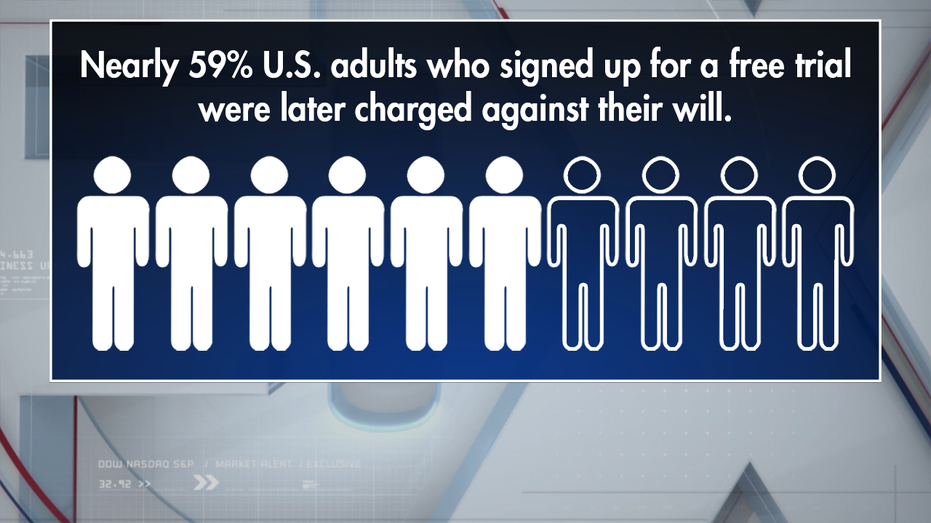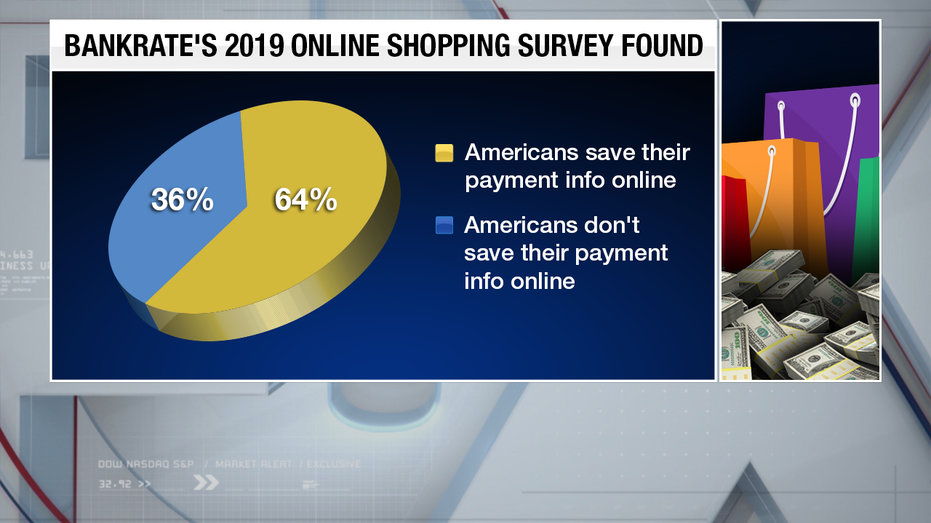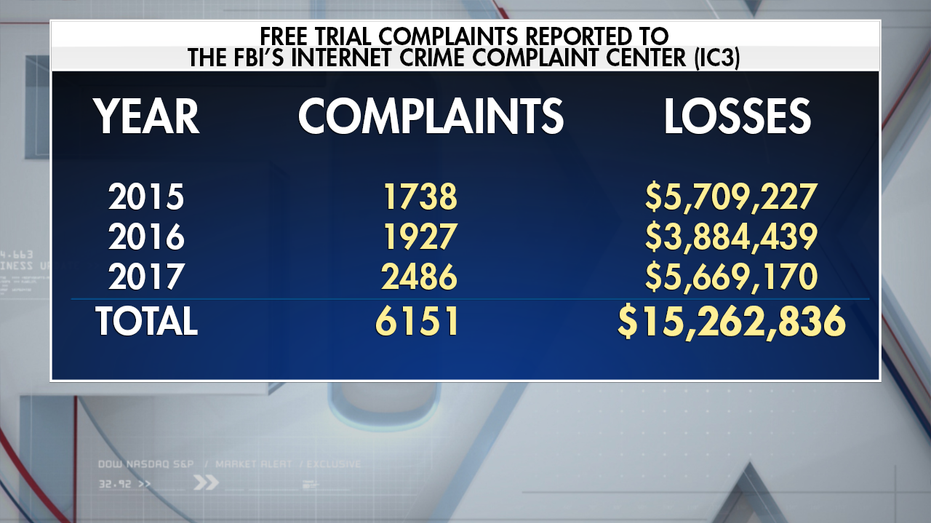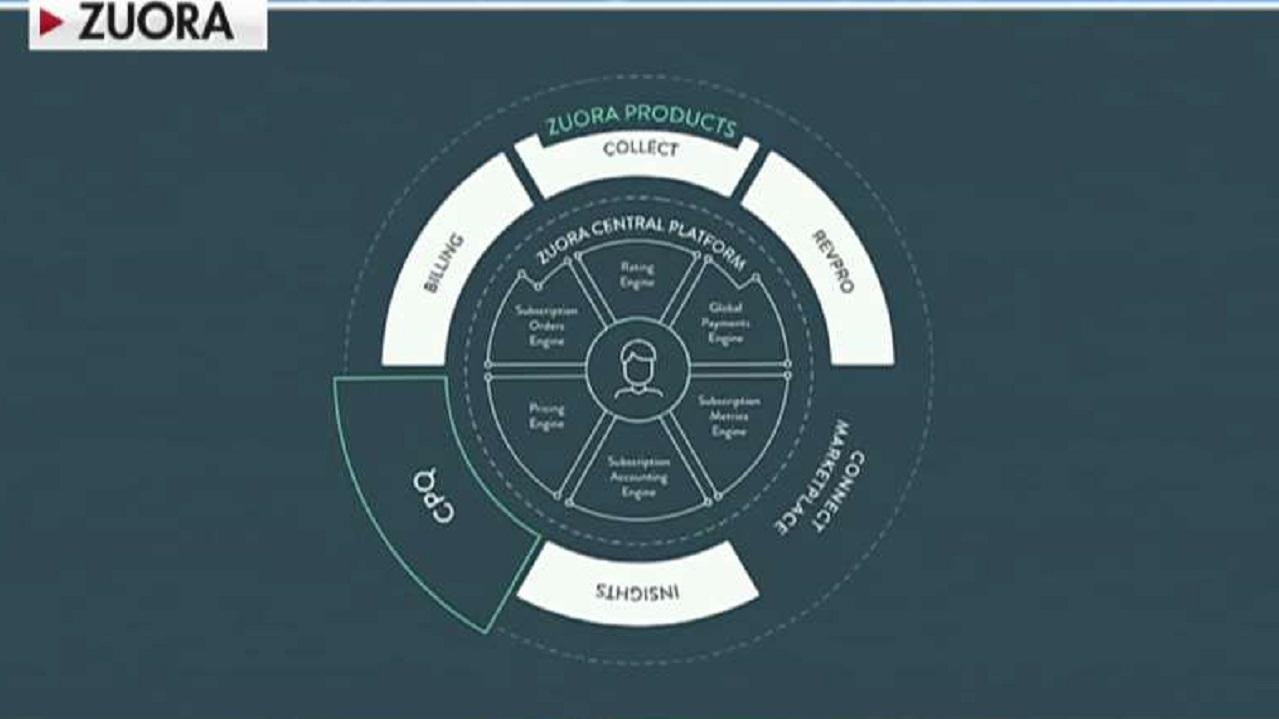'Free trials' are costing Americans a fortune
Americans are losing a surprising amount of money to auto-renewing free trials.
Nothing in life is free, right? But companies continue to market trials as such to wrangle in curious customers.
It seems simple enough, but those free trial promotions usually mean entering a credit or debit card number in exchange for a service. This is convenient if you actually enjoy the service and plan on using it again in the future, but a number of Americans get trapped and lose money to auto-renewing subscriptions when these trials expire.
Ted Rossman, industry analyst for consumer financial service company Bankrate, told FOX Business, "Nearly 6 in 10 U.S. adults who signed up for a free trial were later charged against their will."

The figure comes straight from Bankrate's 2019 online shopping survey last week. It also found that 64 percent of American card holders allow their financial information to be saved when making purchases, despite nearly half of respondents believing it is unsafe to do so.

In the case of free trials, failing to remove a card number or a linked payment account ensures a business has access to your funds.
"Some dishonest businesses make it tough to cancel, hiding the terms and conditions of their offers in teensy type, using pre-checked sign-up boxes as the default setting online, and putting conditions on returns and cancellations that are so strict it could be next to impossible to stop the deliveries and the billing," the Federal Trade Commission warns consumers on its website.
"Or, the 'free trial' might come with a small shipping and handling fee. You think you're only paying a couple of dollars, but you're really giving over your credit card information, resulting in much higher charges after the trial."
Oftentimes, auto-renewing free trials are smaller scale fees that won't lead to financial ruin. But those numbers add up quickly when counting how much is lost across the country.
The Better Business Bureau identified 36,986 complaints in a study last year that found customers lost $186 on average for the cases that involved monetary loss.

The nonprofit's study also cited data from the Federal Bureau of Investigation's Internet Crime Complaint Center that stated 6,151 complaints resulted in a total of $15,262,836 from 2015 to 2017.
MILLENNIAL MONEY: HOW TO STEM 'SUBSCRIPTION CREEP'
Kayse Kress, a certified financial planner at Physician Wealth Services shared with FOX Business her experience of falling for a free trial promotion in the '90s for CosmoGirl magazine. She said as a teenager, she didn't realize the trial was limited to 12 months and was surprised to get a bill at the 18-month mark.
Kress noted that she got to learn her lesson thanks to the rise of ecommerce and apps.
"Digitized banking and automated payments have made it so much easier for companies to start charging for something that a consumer signed up for thinking it was free. I was lucky enough to be notified by mail and phone that this charge was occurring before it went on for too long," she explained.
Tess Thompson, an outreach specialist at Money Done Right had a similar experience when she was a college student. She had signed up for an account with textbook rental website Chegg and took advantage of the company's free shipping and discount promotion that came with a week-long trial of homework help.
THIS NEW CREDIT CARD AUTOMATICALLY CANCELS FREE TRIALS SO YOU WON'T BE CHARGED
Thompson hadn't realized that she needed to cancel the trial since she wasn't using Chegg's online tutoring service. But since the company already had her mother's credit card number on file for her previous book purchase, Thompson was charged $30 per month.
"When I finally did check the transactions, I saw this random charge over the months that added up to about $90. I was so shocked and really mad because Chegg never contacted or emailed me at all to tell me the free trial was ending," Thompson told FOX Business. "They never let me know they would be starting the payments. I was a poor college student and $90 was a lot of money for me."
Luckily, Thompson received a partial refund after contacting Chegg's customer service, and she said she learned from the experience. Not all customers are successful in getting their money back.
NORDVPN ENDS FREE TRIAL DUE TO SCAMMER ABUSE
Laurice Wardini, who is in the process of launching her fashion website ClothedUp, said she lost nearly $200 when her month-long free trial expired for the SEO software service Moz.
"Although this was my mistake because I forgot to cancel, it took a toll since I don't make much extra income after accounting for bills and rent," she said.
Managing editor of Expert Insurance Reviews, Leslie Kasperowicz, said she canceled her free trial account with fuboTV at the end of the promotional period, but was still charged.
GET FOX BUSINESS ON THE GO BY CLICKING HERE
"When we contacted customer service, they refused to refund our money, stating that their policy was to refund only if the charge was reported within 24 hours," Kasperowicz explained.
She added: "Since the charge hadn't even shown up in our bank account yet, and the account showed no charges in the billing section, giving us no reason to check our bank account, we had no idea we had been charged until well past 24 hours."
The streaming service fuboTV told FOX Business that customers are offered "a 24-hour grace period on refunds" when they fail to cancel their free trial, and that the company has also implemented a notification system that sends a reminder out a day before the trial's expiration.
CLICK HERE TO READ MORE ON FOX BUSINESS
Individuals who find themselves in troubling auto-renewing subscriptions, the Federal Trade Commission urges consumers to report the incident to the organization's FTC Complaint Assistant. Alternatively, shoppers who have been burned by auto-renewing free trials can contact their local consumer protection agency or file a complaint with the Better Business Bureau.
This article has been updated to reflect commentary from fuboTV.




















